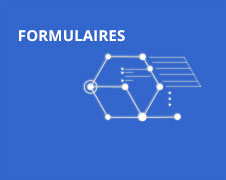Institut de recherche sur les exoplanètes
Media
Profile
About us
We are living at a pivotal time in human history, as technology is advancing to the point that we will be able to answer one of the most fundamental questions: Are we alone in the universe? This quest alone justifies the investment of billions of dollars in robotic exploration of our solar system and the construction of powerful astronomical observatories on Earth and in space.
Since the discovery in 1995 of the 1st planet orbiting a star other than our Sun, astronomers have confirmed the existence of several thousand exoplanets. Thousands of additional candidates have been identified, including rocky Earth-like planets. Over the coming decade, the new generation of telescopes and instruments will allow us to probe the atmosphere of extrasolar planets similar to ours for the first time, looking for water vapour and perhaps even signatures of biological activity like oxygen, ozone and methane.
The Institute for research on exoplanets (iREx) brings together top researchers and their students so as to benefit as much as possible from major current and upcoming observation projects, with the ultimate goal of finding life elsewhere. The Institute is devoted to exploring new worlds and seeking life on other planets.
Affiliations
Universities
- Université McGill/McGill University
Addresses
Location on the University campus
Roger-Gaudry, room D-455For more information…
-
Infolettre de l'iREx
-
21-04-2018 À la recherche de la vie sur les exoplanètes
-
06-09-2018 Une exoplanète toute montréalaise
-
23-02-2015 Sommes-nous seuls dans l'Univers? «On le saura bientôt!»
-
08-02-2015 La NASA décerne une bourse prestigieuse à un étudiant de l'UdeM
-
22-06-2015 Détecter les exoplanètes près de leur étoile
-
13-08-2015 Des astronomes photographient une exoplanète géante gazeuse plus jeune que Jupiter
-
08-10-2015 1M$ pour trouver de la vie extraterrestre
-
21-10-2015 Il pleut des astéroïdes... sur une naine blanche
-
05-01-2017 Nos chercheurs s’illustrent au palmarès des 10 découvertes de l’année de «Québec Science»
-
10-02-2017 Un objet similaire à une comète pollue l’atmosphère d’une naine blanche
-
28-02-0217 À la recherche d'exoplanètes errantes dans notre coin de la Galaxie
-
09-05-2017 Ce n’est pas une naine brune, c’est une planète errante!
-
19-06-2017 Des super-Terre et des mini-Neptune peuplent notre galaxie
-
25-07-2017 Une journée d’astronomie au campus MIL de l’Université de Montréal
-
17-08-2017 Les scientifiques résolvent le mystère des naines brunes variables
-
09-09-2017 La recherche de vie de la NASA au-delà du système solaire
-
05-12-2017 Deux super-Terre gravitent autour de l’étoile K2-18
-
08-01-2018 Étienne Artigau, chercheur à l’iREx, dirige une équipe qui utilisera le James Webb Space Telescope de la NASA
-
16-04-2018 TESS et l’iREx: une grande synergie pour l’étude des systèmes planétaires
-
23-05-2018 Baptême de lumière spatiale pour SPIRou!
-
24-07-0218 Un œil québécois sur l’Univers
-
05-09-2018 Découverte d’une exoplanète par une équipe internationale dirigée par une étudiante
-
26-09-2018 Deux artistes rapportent des «Merveilles célestes» du mont Mégantic
-
29-10-2018 Vie extraterrestre: science et fiction main dans la main
-
05-11-2018 À la recherche de la vie extraterrestre
-
05-11-2018 De l’UdeM au Planétarium
-
09-11-2018 Deux nouveaux spectacles qui prennent l’affiche au Planétarium de Montréal, transportent les spectateurs dans l’es
Team
Directors
At Université de Montreal
- René Doyon - Directeur
- Marie-Eve Naud - Coordonnatrice
- Nathalie Ouellette - Coordonnatrice
- Frédérique Baron - Coordonnatrice
Members
At Université de Montreal
External
Committees
Expertise
Projects and funding
Publications and presentations
Publications
- Les publications de l'iREx se trouvent ici : http://www.exoplanetes.umontreal.ca/activites/publications-5/
Disciplines
- Astronomy and Astrophysics
- Physics
- Physical Engineering
- Earth Science
- Material Engineering and Metallurgic Engineering
- Mechanical Engineering
Areas of expertise
- Extrasolar planetary systems
- Atmospheres of solid surface planets
- Atmospheres of fluid planets
- Fundamental astronomy
- Nuclear astrophysics
- Fundamental aspects of astrophysics
- Astronomical and space-research instrumentation
- Radio, microwave astronomical observations
- Gamma rays astronomical observations
- X-ray astronomical observations
- Infrared astronomical observations
- Pulsations, oscillations, and stellar seismology
- Mathematical methods in physics
- Condensed matter physics
- Physics of elementary particles and fields
- Nuclear physics
- Nuclear physics aspects of supernovae
- Solar physics
- Observation and data reduction techniques
- Faint blue stars, White dwarfs, degenerate stars, nuclei of planetary nebulae
- Origin and evolution of solid surface planets
- Equation of state of neutron-star matter
- Low luminosity stars, subdwarfs and brown dwarfs
- Emission-line stars (Of, Be, LBV, Wolf-Rayet stars)
- Supergiant stars
- Star formation
Aide en ligne pour le profil de votre unité de recherche | Nous joindre
Le Répertoire des unités de recherche est propulsé par les données du ![]() SADVR et est un projet du CENR.
SADVR et est un projet du CENR.


